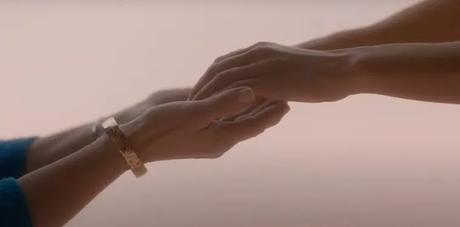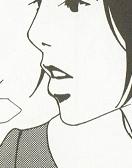It is literally impossible to be a woman.
I don’t think it is possible to write about a film as broadly successful as Barbie (commercially successful, but also as a film that is so perfect at appealing to a wide range of audiences – I imagine if parents take their kids to see it, everyone would be equally entertained) without considering the specific circumstances that we find ourselves in this September 2023. It would be fair to say that the majority of films to have found this kind of overwhelming box office success recently have been part of existing franchises rather than original works – prequels or sequels, and many of them part of the Marvel universe, which since 2009 has been part of Disney. A cooperation between Lego’s parent company and the House of Mouse has made the series of Lego-adjacent movies possible, probably the most visible representation of the incredible convergence of stories into a singular entity (how else could Batman and Han Solo coexist in the same film).
The very hungry Caterpillar of the entertainment industry makes films possible that feature casts reminiscent of unlikely fanfiction crossovers, but it is also part of the transformation of the film industry into a content factory in which the actors and writers creating the works are getting increasingly less of the pie, hence the ongoing strikes (the Writers Guild of America strike has been ongoing since May, the SAG-AFTRA strike began in July, right in the middle of the Barbie publicity campaign, with a rousing speech by Fran Drescher). The strikes are focused on the transformation of the industry through the advent of streaming and AI (best summarised by the horror story of Snowpiercer actors being asked to have their bodies fully scanned and motion-captured, truly a rabbit hole into a dystopian future).
This is relevant because in a way, Barbie (the film) reflects on its own existence as much as Barbie (the character) does on hers. Mattel’s board, the toy company that owns the rights, appears on screen – with a wink towards the fact that most boards are still overwhelmingly male (Mattel’s actual board, unlike the film’s led by Will Ferrell, has women on it), and eager to return any transgressions and subversions back into a box fitted with restraints. After Ken returns from the real world with dreams about patriarchy, the company profits through an all-Ken overhaul, eager to seize the moment. The film actively – and very successfully, the final moments of the film very much hit the right notes emotionally – argues that there is a mistranslation between the original vision of Barbie creator Ruth Handler, who named the dolls after her daughter Barbara (her son’s name was Kenneth) and is in many ways as close to a mother-figure as the Barbies of the film can claim, and whatever happened to that vision in the years since 1959 through increasing modern commercialisation. In a way, including Mattel itself in the film feels a bit like allowing the audience to see the box that is also a cage. What director Greta Gerwig achieves, almost magically and very artfully, is to then go on and create a film that feels entirely free of any constraints that this may imply.
Part of the magic is Gerwig’s (who co-wrote the script with partner and frequent collaborator Noah Baumbach) devotion to the source material. It reminded me that children playing with toys is very much like story writing – imagining relationships and stories, creating potential versions of the future. In a way, once the Barbies (and Kens) come out of the box, who they are, their potential, is entirely up to whoever is playing with them, an idea that is very much at the center of the film. Nothing is a better example of the breadth of possibility than Kate McKinnon’s weird Barbie, the oracle who has secret knowledge and has been exiled to the outskirts of town, far removed from the pristine version that came out of the box. Gerwig goes deep into Barbie lore, lovingly reviving discontinued dolls (some of which feel like they have the potential to be in a horror film menagerie – a pregnant Barbie with a removable baby in its belly, a Barbie with an implanted screen, Allen). The set design is astonishing and deeply considered, creating a bright artificiality that feels perfect (a 3D fridge opening into a 2D display of groceries, the sheer variety of Barbie mansions, the outfits that fan out like a catalog spread). The soundtrack, mostly written specifically for the film (one of the greatest exceptions to this is the Indigo Girl’s “Closer to Fine”, which might as well be, considering how perfectly it fits and predicts the last scene of the film), comments on the scenes it accompanies like a second narrator voice, along with Helen Mirren’s. None of this would come to fruition without the luminous performance by Margot Robbie, who was so good in I, Tonya and as Harley Quinn and yet makes this her greatest role so far. If Barbies are a way for children to imagine adulthood and to playact it, Robbie is tasked with playing a character who goes from naiveté to knowledge (in the context of some of the references in the film, it is a journey that isn’t dissimilar to that of Keanu Reeve’s Neo – she chooses the pink Birkenstocks in the end). She plays it all brilliantly – the lightness of the never-changing everyday (floating from her house into her Barbie mobile, beach, party) after what she thinks is the total success of feminism, the utter dread and horror of thinking about death, the journey through the portal into the real world where everything feels wrong, fighting a misogynist resurrection, making a choice between the comfort of the plastic known and the possibilities of the messiness of real-world womanhood.
The twist of the film – that the connection between the person who plays with the Barbie and the Barbie itself is like a red string through dimensions – is beautiful. Barbie discovers that her thoughts of death and the woes of flat feet and cellulitis have arrived in her perfect world because she is being played with – written by, in a way – by a woman, not a child. If the idea of Barbies being a wormhole into adulthood for children points towards an idealised imagination of the future, America Ferrera’s Gloria is play-acting all the horrors of being an actual, real-world person: the messiness of raising a rebellious teenage daughter (the only person in the film to voice what the beauty standard of Barbie has done to women – perhaps my sole frustration with the film is how much that view softens towards the end), of having to go to a bland job every single day, of fearing death. The idea here is that Robbie’s Barbie is the stereotypical one – without a fancy title, without any of the aspirational job descriptions (President, astronaut, doctor). What does it mean to be an under-achiever in a world where everyone else seems to be exceptional (Helen Mirren’s narrator voice drily points out that Robbie may have been miscast for that particular argument)? What does it mean to be failing the great aspirations of that particular kind of feminism (maybe a feminism that would think that all woes would be solved with more women on the board of Mattel, and be wrong about it) by just living a regular, messy life, and having to derive meaning from smaller achievements that are less celebrated?
And then there’s Ken – and again, Ryan Gosling, utterly embracing the character, gives the performance of a lifetime. Kens are marginal, an afterthought. He exists for Barbie, but he is only a trivial aspect of Barbie’s life, which is mainly filled with female companion- and friendship. Gerwig eloquently thinks this through, but I think Ken makes a lot more sense when seen as inspired by her experience of raising boys – and his childishness is ultimately what saves him from being an ultimate villain character. When he stows away to accompany Barbie into the real world, he emerges into a place where everything is seductively reversed in his favour. The scenes in which he marvels at this world that is so far removed from Barbie’s dream of successful feminism while Barbie suffers the discomfort and inner torture of being objectified (voiced perfectly as constant quiet terror, a feeling of being disquietingly unsafe), are some of the best of the film. He sees patriarchy (and horses, mainly horses) and discovers what it means to want to live in a world that entirely caters to his desires, much like a child would. Gerwig of course is very conscious that she is portraying the real-world and terrifying current version of being red-pilled (the Snyder Cut is name-dropped) – and portrays patriarchy almost like a product that can be desired just as a car or a house would, with utter disregard for the consequences. But, like anyone who has purchased an unsatisfying product that is used as a replacement for true meaning, once Ken has everything he wants (the Barbie mansion transformed into a frat house, Barbies who no longer aspire to be anything other than providers of beer refills and receivers of interpretations of The Godfather and guitar ballads with questionable lyrics, horse videos on loop), he remains deeply unfulfilled, longing for true connection that is now even further out of his reach. Gosling’s portrayal of Ken’s abysmal emptiness, donning his absurd coat while lording over his kingdom, is stunning – patriarchy hurts men through its enforced disconnection, but that is not to say that it doesn’t hurt women more.
The key scene of the film is early on, in the real world, when Barbie encounters an old woman at a bus stop. She finds her beautiful. The woman doesn’t need to be told – she already knows. It must be Barbie's first experience of seeing old age – the idealised version of life in Barbieland excludes aging for the same reasons that her thoughts of the existence of death mark her as an outsider. The possibilities we see represented – in the products we buy, in the films and TV we watch – determines our perception of the world. I think Gerwig’s greatest success in this deeply ambitious film, that feels like it exists in spite of itself, is grasping towards a fuller picture of this messy, beautiful world.
2023, directed by Greta Gerwig, starring Margot Robbie, America Ferrera, Issa Rae, Kate McKinnon, Alexandra Shipp, Emma Mackey, Hari Nef, Sharon Rooney, Ana Cruz Kayne, Ritu Arya, Dua Lipa, Nicola Coughlan, Emerald Fennell, Ariana Greenblatt, Ryan Gosling, Simu Liu, Ncuti Gatwa, Michael Cera, Rhea Perlman, Helen Mirren, Will Ferrell.


